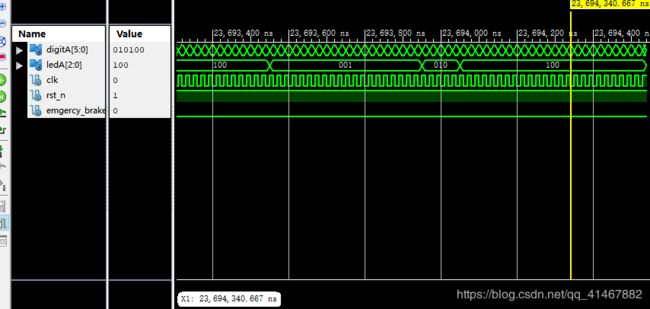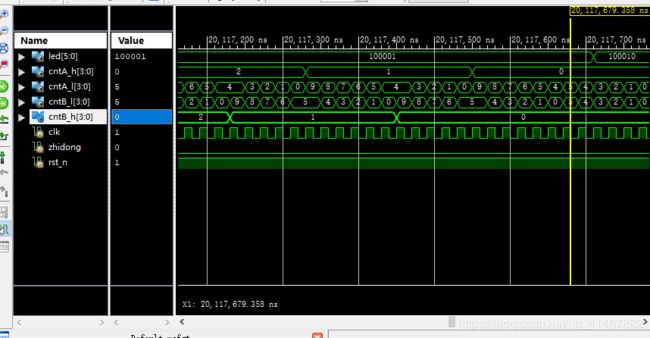- Spring Bean 的生命周期是怎样的?
冰糖心书房
SpringFramework2025Java面试系列javaspring
SpringBean的生命周期是指从Bean的创建到销毁的整个过程,这个过程由SpringIoC容器管理。理解Bean的生命周期可以帮助我们在控制Bean的初始化和销毁行为,以及在Bean生命周期的不同阶段执行自定义逻辑。以下是SpringBean的完整生命周期,包括各个阶段以及可以介入的方法:1.实例化(Instantiation):Bean定义加载:Spring容器读取Bean定义(XML配置
- Spring Boot中定时任务Cron表达式的终极指南
智能编织者
springboot后端java
SpringBoot中定时任务Cron表达式的终极指南一、Cron表达式基础二、SpringBoot中定时任务的实现三、Cron表达式高级用法四、调试与验证技巧五、常见问题与解决方案六、最佳实践总结定时任务是后端开发中实现周期性业务逻辑的核心技术之一。在SpringBoot生态中,结合@Scheduled注解和Quartz调度框架,开发者可以轻松实现复杂的定时任务。然而,Cron表达式作为定时任务
- 【达梦数据库学习】数据库体系架构-逻辑结构理解
合作愉快:)
数据库数据库架构学习
1.1数据库和实例在有些情况下,数据库的概念包含的内容会很广泛。如在单独提到DM数据库时,可能指的是DM数据库产品,也有可能是正在运行的DM数据库实例,还可能是DM数据库运行中所需的一系列物理文件的集合等。但是,当同时出现DM数据库和实例时,DM数据库指的是磁盘上存放在DM数据库中的数据的集合,一般包括:数据文件、日志文件、控制文件以及临时数据文件等。实例一般是由一组正在运行的DM后台进程/线程以
- RK3568平台(音频篇)音频ALSA框架
嵌入式_笔记
瑞芯微音视频
一.ALSA框架简介ALSA表示先进linux声音架构(AdvancedLinuxSoundArchiecture),它由一系列的内核驱动、应用程序编程接口(API)以及支持linux下声音的应用程序组成、ALSA项目发起的原有是linux下的声卡驱动(OSS)没有获得积极的维护,而且落后于新的声卡技术。JaroslavKysela早先写了一个声卡驱动,并由此开始了ALSA项目,随后,更多的开发者
- 如何使用Formal SEC证明设计手动插入的clock gating cell没有引入功能问题?
iccnewer
基于FormalSEC的时钟门控验证技术是一个非常高效,但是并不是每个芯片工程师都使用过技术。很多公司的流程可能也不涉及。设计手动插入clockgating的目的是通过关闭闲置电路的时钟来降低功耗(可能是拿内部一些vld信号作为唤醒信号,或者使用某个featureen信号),但验证其正确性极为复杂。传统仿真难以覆盖所有场景,尤其是时序边界或逻辑组合问题,可能导致功能错误或功耗异常。如果唤醒信号有几
- spring MVC 介绍
LCY133
spring后端springmvcjava
SpringMVC是Spring框架中用于构建Web应用的核心模块,基于MVC设计模式(Model-View-Controller)实现。以下是其核心概念的整理:1.MVC设计模式•Model(模型):封装业务数据和业务逻辑(如POJO对象、Service层)。•View(视图):负责数据展示(如JSP、Thymeleaf、HTML)。•Controller(控制器):接收请求,调用业务逻辑,返回
- 关于forward函数
oioz
深度学习
定义forward函数是模型的核心前向传播逻辑,定义了输入数据如何在模型中传递和计算。它将输入数据通过模型的各层(如卷积层、全连接层等),计算出模型的输出。作用负责模型的主要计算逻辑。在训练和验证过程中都会被调用。特点必须实现:在PyTorch中,forward函数是模型的核心部分,必须显式定义。灵活性高:可以根据模型需要,自由定义forward函数的内容,包括各种计算操作。示例(PyTorch)
- OpenCV图像处理基础2
指尖下的技术
OpenCVopencv图像处理计算机视觉
接着上一篇OpenCV图像处理基础1继续说。图像阈值处理1、简单阈值处理ret,thresholded_image=cv2.threshold(image,thresh,maxval,cv2.THRESH_BINARY)thresh是阈值,maxval是最大值。2、自适应阈值处理thresholded_image=cv2.adaptiveThreshold(image,maxval,cv2.ADA
- Angular 编译前的脚本执行
t0_54manong
编程问题解决手册angular.js前端javascript个人开发
在使用Angular开发项目时,有时候我们需要在每次编译之前执行特定的脚本或JavaScript函数。这在开发环境中非常有用,比如运行某些预处理、清理或其他自定义逻辑。今天我们将探讨如何在Angularv17结合esbuild实现这个功能。问题背景假设你正在使用Angularv17进行开发,并且已经配置了esbuild作为构建工具。现在你需要在每次Angular编译之前(特别是使用ngwatch时
- 鸿蒙 5 开发工具 Ark-TS UI 到底有多好用?一篇文章讲明白
harmonyos-next
鸿蒙5系统越来越火,很多开发者都在学怎么用它开发应用。所以今天咱们聊聊鸿蒙5里特别重要的一个工具——Ark-TSUI。这玩意儿到底是干啥的?简单说,它就是用来做应用界面的,而且比传统方法更简单、更高效。下面咱们用大白话讲讲它的厉害之处。一、不用纠结怎么盖房子,只需要画图纸以前写代码做界面,就像盖房子要一块砖一块砖垒——得告诉程序“先建墙,再安门,最后刷漆”。但Ark-TSUI不一样,它用的是“声明
- 一切皆是映射:实现神经网络的硬件加速技术:GPU、ASIC(专用集成电路)和FPGA(现场可编程门阵列)
AI天才研究院
AI大模型企业级应用开发实战DeepSeekR1&大数据AI人工智能大模型计算科学神经计算深度学习神经网络大数据人工智能大型语言模型AIAGILLMJavaPython架构设计AgentRPA
文章目录一切皆是映射:实现神经网络的硬件加速技术:GPU、ASIC(专用集成电路)和FPGA(现场可编程门阵列)1.背景介绍2.核心概念与联系3.核心算法原理&具体操作步骤3.1算法原理概述3.2算法步骤详解3.2.1GPU加速3.2.2ASIC加速3.2.3FPGA加速3.3算法优缺点GPUASICFPGA3.4算法应用领域4.数学模型和公式&详细讲解&举例说明4.1数学模型构建4.2公式推导过
- 计算机基础:编码02,有符号数编码,原码
水饺编程
MFC学习笔记Win32学习笔记c++windowsmfcc语言
专栏导航本节文章分别属于《Win32学习笔记》和《MFC学习笔记》两个专栏,故划分为两个专栏导航。读者可以自行选择前往哪个专栏。(一)WIn32专栏导航上一篇:计算机基础:编码01,无符号数编码回到目录下一篇:计算机基础:编码03,根据十进制数,求其原码(二)MFC专栏导航上一篇:计算机基础:编码01,无符号数编码回到目录下一篇:计算机基础:编码03,根据十进制数,求其原码本节前言上一节,我是讲解
- Fpga-流水灯代码详解
一顿吃一锅
fpga开发
moduleflowled(inputsys_clk50,inputrst_n,outputreg[3:0]led);reg[23:0]cnt;always@(posedgesys_clk50ornegedgerst_n)beginif(!rst_n)cnt<=24'd0;elseif(cnt<24'd10000000)cnt<=cnt+1'b1;elsecnt<=24'd0;endalways@
- 逐行讲解大模型解码超参数大全(temperature、top-k、top-p等所有参数)
Gaffey大杂烩
大模型机器学习人工智能
目录简介宏观概览解码策略实现逻辑常见的解码超参数temperature温度系数top_ktop_prepetition_penalty重复惩罚不常见的解码超参数min_ptypical解码ϵ采样η采样Classifier-FreeGuidance(CFG)序列偏置干预HammingDiversity编码器重复惩罚n-gram重复惩罚编码器n-gram重复惩罚bad_token惩罚最小长度限制最小新
- FPGA实战1-流水灯实验verilog
马志高
FPGAfpga开发
1.实验要求(1)设计一个流水灯的实验,实现12位流水灯的依次点亮,(2)流水灯的流转时间是(500ms/2Hz),(3)系统时钟位50MHz,(4)定义12个寄存器ledtemp保存12个状态,(5)寄存器的初始值位12'b0000_0000_0001,(6)当移位到12‘b1000_0000_0000时,ledtemp的值回到12'b0000_0000_0001,2.设计代码//coding/
- JavaScript基础-DOM事件流
難釋懷
javascript开发语言
在Web开发过程中,理解和掌握DOM事件流是实现高效交互的关键。DOM事件流描述了当一个事件发生时,它在文档树中的传播路径。了解事件流的概念有助于我们更精确地控制事件处理逻辑,避免不必要的行为,并提升用户体验。本文将深入探讨DOM事件流的基本概念,包括事件捕获、目标阶段和事件冒泡,并通过示例展示如何应用这些知识。一、什么是DOM事件流?DOM事件流是指事件在整个页面结构中传播的过程。根据W3C标准
- 使用PyTorch搭建Transformer神经网络:入门篇
DASA13
pytorchtransformer神经网络
1.简介Transformer是一种强大的神经网络架构,在自然语言处理等多个领域取得了巨大成功。本教程将指导您使用PyTorch框架从头开始构建一个Transformer模型。我们将逐步解释每个组件,并提供详细的代码实现。2.环境设置首先,确保您的系统中已安装Python(推荐3.7+版本)。然后,安装PyTorch和其他必要的库:pipinstalltorchnumpymatplotlib3.P
- 一篇文章带你了解-selenium工作原理详解
程序员笑笑
软件测试selenium测试工具软件测试自动化测试功能测试程序人生职场和发展
前言Selenium是一个用于Web应用程序自动化测试工具。Selenium测试直接运行在浏览器中,就像真正的用户在操作一样。支持的浏览器包括IE(7,8,9,10,11),MozillaFirefox,Safari,GoogleChrome,Opera等。主要功能包括:测试与浏览器的兼容性——测试你的应用程序看是否能够很好得工作在不同浏览器和操作系统之上。测试系统功能——创建回归测试检验软件功能
- 纯「牛马」的逻辑玩儿不转了!
求职面试职场创业创业者
又在微信群里被「声讨」了,距离上次这等待遇也过去一段时间了,让人有点「怀念」呢~(别瞎想,我不是字母!)我想此刻趁这心情还未消散殆尽,把近期一直想说但没说的话先说一遍,也暂时不管它是否严谨了,看完想吐槽就尽管来吧!麻木的纯「牛马」们在2022年11月末,ChatGPT的横空出世拉开了AI时代的帷幕,迄今为止两年多过去了,相关基础设施和上层应用已经涌现并迭代了很多版本。在这期间,很多人都至少听说过几
- WebGL开发:BabylonJS从入门到精通(下卷)
莲华君
前端权威教程合集WebGL系统化学习webgl
全书卷目:WebGL开发:BabylonJS从入门到精通(上卷)WebGL开发:BabylonJS从入门到精通(下卷)目录第一部分:基础篇——构建3D世界的基石第一章:BabylonJS概述与环境搭建什么是BabylonJS:WebGL宇宙的创世引擎BabylonJS的历史与优势:开源利剑的进化史安装与配置开发环境:3D工匠的工坊搭建术使用BabylonJSPlayground与本地开发环境浏览器
- MSE分类时梯度消失的问题详解和交叉熵损失的梯度推导
阿正的梦工坊
MachineLearningDeepLearning分类人工智能深度学习机器学习
下面是MSE不适合分类任务的解释,包含梯度推导。以及交叉熵的梯度推导。前文请移步笔者的另一篇博客:大模型训练为什么选择交叉熵损失(Cross-EntropyLoss):均方误差(MSE)和交叉熵损失的深入对比MSE分类时梯度消失的问题详解我们深入探讨MSE(均方误差)的梯度特性,结合公式推导和分析,解释为什么在预测值接近0或1时梯度趋于0,以及这背后的含义。我会尽量保持清晰且严谨,适合高理论水平的
- 华为OD机试 - 书籍叠放 - 逻辑分析(Python/JS/C/C++ 2024 B卷 200分)
哪 吒
华为odpythonjavascript
华为OD机试2024E卷题库疯狂收录中,刷题点这里专栏导读本专栏收录于《华为OD机试真题(Python/JS/C/C++)》。刷的越多,抽中的概率越大,私信哪吒,备注华为OD,加入华为OD刷题交流群,每一题都有详细的答题思路、详细的代码注释、3个测试用例、为什么这道题采用XX算法、XX算法的适用场景,发现新题目,随时更新。一、题目描述书籍的长、宽都是整数对应(l,w)。如果书A的长宽度都比B长宽大
- 基于ChatGPT、GIS与Python机器学习的地质灾害风险评估、易发性分析、信息化建库及灾后重建高级实践
weixin_贾
防洪评价风险评估滑坡泥石流地质灾害
第一章、ChatGPT、DeepSeek大语言模型提示词与地质灾害基础及平台介绍【基础实践篇】1、什么是大模型?大模型(LargeLanguageModel,LLM)是一种基于深度学习技术的大规模自然语言处理模型。代表性大模型:GPT-4、BERT、T5、ChatGPT等。特点:多任务能力:可以完成文本生成、分类、翻译、问答等任务。上下文理解:能理解复杂的上下文信息。广泛适配性:适合科研、教育、行
- anythingLLM 使用教程
惟贤箬溪
穷玩AiAIGC人工智能
一、anythingLLM简介anythingLLM是一款灵活且功能强大的语言模型,它基于先进的深度学习架构构建,旨在为用户提供多样化的自然语言处理服务。其设计理念注重通用性和可扩展性,能够适应多种领域和任务,无论是文本生成、智能问答,还是翻译、摘要提取等,都能展现出出色的性能。与同类模型相比,anythingLLM具有训练数据丰富、模型优化程度高的优势,能够生成更符合逻辑、更具实用性的文本内容。
- 基于ThinkPHP6用户登录逻辑,结合FastAPI框架实现用户登录系统的全流程解析
Wiktok
pythonfastapi
基于ThinkPHP6用户登录逻辑,结合FastAPI框架实现用户登录系统的全流程解析,涵盖路由配置、数据验证、JWT令牌生成与鉴权、中间件依赖等核心环节:1.路由配置与请求处理路由定义:使用APIRouter组织用户认证相关接口(注册、登录),并通过app.include_router()集成到主应用。例如:#routers/auth.pyfromfastapiimportAPIRouterro
- 在 Linux 中,lsblk 命令输出内容解释
冷冷清清中的风风火火
linux运维服务器
在Linux中,lsblk命令用于以树状结构列出所有块设备(如磁盘、分区、LVM逻辑卷等)的信息。以下是lsblk输出的详细解释和示例:1.示例输出NAMEMAJ:MINRMSIZEROTYPEMOUNTPOINTSsda8:00238.5G0disk├─sda18:10512M0part/boot/efi├─sda28:201G0part/boot└─sda38:30237G0part└─vg-
- 在 Linux 系统中,区分**磁盘(物理/虚拟存储设备)和分区(磁盘的逻辑划分)
冷冷清清中的风风火火
linux运维服务器
在Linux系统中,区分**磁盘(物理/虚拟存储设备)和分区(磁盘的逻辑划分)**是管理存储的基础。以下是详细的区分方法和操作示例:一、通过设备命名规则区分Linux中磁盘和分区的命名遵循特定规则:类型命名格式示例说明磁盘/dev/sdX/dev/sdasd表示SCSI/SATA磁盘,X为字母(a,b,c…)。/dev/nvmeXnY/dev/nvme0n1nvme表示NVMe磁盘,X为控制器编号
- 什么是CDN?一篇让小白也能看懂的科普博客
网络小白不怕黑
网络科普网络CDN网络科普
目录什么是CDN?CDN的工作原理CDN的核心组成部分CDN的主要作用CDN的应用场景CDN的优势与局限性如何选择CDN服务?总结1.什么是CDN?CDN的全称是ContentDeliveryNetwork,中文翻译为内容分发网络。简单来说,CDN是一个由多个服务器组成的网络系统,这些服务器分布在世界各地,用来帮助用户更快、更稳定地访问网站、视频、图片等内容。举个例子:假设你在北京访问一个位于美国
- Oracle数据库与Java全栈开发一篇搞定(指南式教学)
Aphelios380
Oracle数据库oraclejava
一、基础操作篇1.数据定义语言(DDL)核心操作1.1表结构设计技巧--电商用户表设计示例CREATETABLEtb_users(user_idNUMBER(10)PRIMARYKEY,usernameVARCHAR2(30)UNIQUENOTNULL,passwordCHAR(32)DEFAULT'e10adc3949ba59abbe56e057f20f883e',emailVARCHAR2(5
- 嵌入式硬件篇---蓝牙模块
Ronin-Lotus
嵌入式硬件篇程序代码篇嵌入式硬件网络c蓝牙
文章目录前言一、核心技术原理蓝牙工作流程设备发现阶段配对连接阶段数据传输阶段二、协议栈架构(以BLE为例)1.物理层2.链路层3.HCI层4.GATT三、典型应用场景扩展1.室内定位系统(蓝牙5.1+)2.运动健康监测3.工业控制四、ESP32开发示例(BLE+经典蓝牙)1.环境配置2.BLE服务端代码3.经典蓝牙串口通信五、关键技术参数对比六、开发调试技巧空中抓包分析七、最新技术演进(蓝牙5.4
- jdk tomcat 环境变量配置
Array_06
javajdktomcat
Win7 下如何配置java环境变量
1。准备jdk包,win7系统,tomcat安装包(均上网下载即可)
2。进行对jdk的安装,尽量为默认路径(但要记住啊!!以防以后配置用。。。)
3。分别配置高级环境变量。
电脑-->右击属性-->高级环境变量-->环境变量。
分别配置 :
path
&nbs
- Spring调SDK包报java.lang.NoSuchFieldError错误
bijian1013
javaspring
在工作中调另一个系统的SDK包,出现如下java.lang.NoSuchFieldError错误。
org.springframework.web.util.NestedServletException: Handler processing failed; nested exception is java.l
- LeetCode[位运算] - #136 数组中的单一数
Cwind
java题解位运算LeetCodeAlgorithm
原题链接:#136 Single Number
要求:
给定一个整型数组,其中除了一个元素之外,每个元素都出现两次。找出这个元素
注意:算法的时间复杂度应为O(n),最好不使用额外的内存空间
难度:中等
分析:
题目限定了线性的时间复杂度,同时不使用额外的空间,即要求只遍历数组一遍得出结果。由于异或运算 n XOR n = 0, n XOR 0 = n,故将数组中的每个元素进
- qq登陆界面开发
15700786134
qq
今天我们来开发一个qq登陆界面,首先写一个界面程序,一个界面首先是一个Frame对象,即是一个窗体。然后在这个窗体上放置其他组件。代码如下:
public class First { public void initul(){ jf=ne
- Linux的程序包管理器RPM
被触发
linux
在早期我们使用源代码的方式来安装软件时,都需要先把源程序代码编译成可执行的二进制安装程序,然后进行安装。这就意味着每次安装软件都需要经过预处理-->编译-->汇编-->链接-->生成安装文件--> 安装,这个复杂而艰辛的过程。为简化安装步骤,便于广大用户的安装部署程序,程序提供商就在特定的系统上面编译好相关程序的安装文件并进行打包,提供给大家下载,我们只需要根据自己的
- socket通信遇到EOFException
肆无忌惮_
EOFException
java.io.EOFException
at java.io.ObjectInputStream$PeekInputStream.readFully(ObjectInputStream.java:2281)
at java.io.ObjectInputStream$BlockDataInputStream.readShort(ObjectInputStream.java:
- 基于spring的web项目定时操作
知了ing
javaWeb
废话不多说,直接上代码,很简单 配置一下项目启动就行
1,web.xml
<?xml version="1.0" encoding="UTF-8"?>
<web-app xmlns:xsi="http://www.w3.org/2001/XMLSchema-instance"
xmlns="h
- 树形结构的数据库表Schema设计
矮蛋蛋
schema
原文地址:
http://blog.csdn.net/MONKEY_D_MENG/article/details/6647488
程序设计过程中,我们常常用树形结构来表征某些数据的关联关系,如企业上下级部门、栏目结构、商品分类等等,通常而言,这些树状结构需要借助于数据库完成持久化。然而目前的各种基于关系的数据库,都是以二维表的形式记录存储数据信息,
- maven将jar包和源码一起打包到本地仓库
alleni123
maven
http://stackoverflow.com/questions/4031987/how-to-upload-sources-to-local-maven-repository
<project>
...
<build>
<plugins>
<plugin>
<groupI
- java IO操作 与 File 获取文件或文件夹的大小,可读,等属性!!!
百合不是茶
类 File
File是指文件和目录路径名的抽象表示形式。
1,何为文件:
标准文件(txt doc mp3...)
目录文件(文件夹)
虚拟内存文件
2,File类中有可以创建文件的 createNewFile()方法,在创建新文件的时候需要try{} catch(){}因为可能会抛出异常;也有可以判断文件是否是一个标准文件的方法isFile();这些防抖都
- Spring注入有继承关系的类(2)
bijian1013
javaspring
被注入类的父类有相应的属性,Spring可以直接注入相应的属性,如下所例:1.AClass类
package com.bijian.spring.test4;
public class AClass {
private String a;
private String b;
public String getA() {
retu
- 30岁转型期你能否成为成功人士
bijian1013
成长励志
很多人由于年轻时走了弯路,到了30岁一事无成,这样的例子大有人在。但同样也有一些人,整个职业生涯都发展得很优秀,到了30岁已经成为职场的精英阶层。由于做猎头的原因,我们接触很多30岁左右的经理人,发现他们在职业发展道路上往往有很多致命的问题。在30岁之前,他们的职业生涯表现很优秀,但从30岁到40岁这一段,很多人
- 【Velocity四】Velocity与Java互操作
bit1129
velocity
Velocity出现的目的用于简化基于MVC的web应用开发,用于替代JSP标签技术,那么Velocity如何访问Java代码.本篇继续以Velocity三http://bit1129.iteye.com/blog/2106142中的例子为基础,
POJO
package com.tom.servlets;
public
- 【Hive十一】Hive数据倾斜优化
bit1129
hive
什么是Hive数据倾斜问题
操作:join,group by,count distinct
现象:任务进度长时间维持在99%(或100%),查看任务监控页面,发现只有少量(1个或几个)reduce子任务未完成;查看未完成的子任务,可以看到本地读写数据量积累非常大,通常超过10GB可以认定为发生数据倾斜。
原因:key分布不均匀
倾斜度衡量:平均记录数超过50w且
- 在nginx中集成lua脚本:添加自定义Http头,封IP等
ronin47
nginx lua csrf
Lua是一个可以嵌入到Nginx配置文件中的动态脚本语言,从而可以在Nginx请求处理的任何阶段执行各种Lua代码。刚开始我们只是用Lua 把请求路由到后端服务器,但是它对我们架构的作用超出了我们的预期。下面就讲讲我们所做的工作。 强制搜索引擎只索引mixlr.com
Google把子域名当作完全独立的网站,我们不希望爬虫抓取子域名的页面,降低我们的Page rank。
location /{
- java-3.求子数组的最大和
bylijinnan
java
package beautyOfCoding;
public class MaxSubArraySum {
/**
* 3.求子数组的最大和
题目描述:
输入一个整形数组,数组里有正数也有负数。
数组中连续的一个或多个整数组成一个子数组,每个子数组都有一个和。
求所有子数组的和的最大值。要求时间复杂度为O(n)。
例如输入的数组为1, -2, 3, 10, -4,
- Netty源码学习-FileRegion
bylijinnan
javanetty
今天看org.jboss.netty.example.http.file.HttpStaticFileServerHandler.java
可以直接往channel里面写入一个FileRegion对象,而不需要相应的encoder:
//pipeline(没有诸如“FileRegionEncoder”的handler):
public ChannelPipeline ge
- 使用ZeroClipboard解决跨浏览器复制到剪贴板的问题
cngolon
跨浏览器复制到粘贴板Zero Clipboard
Zero Clipboard的实现原理
Zero Clipboard 利用透明的Flash让其漂浮在复制按钮之上,这样其实点击的不是按钮而是 Flash ,这样将需要的内容传入Flash,再通过Flash的复制功能把传入的内容复制到剪贴板。
Zero Clipboard的安装方法
首先需要下载 Zero Clipboard的压缩包,解压后把文件夹中两个文件:ZeroClipboard.js
- 单例模式
cuishikuan
单例模式
第一种(懒汉,线程不安全):
public class Singleton { 2 private static Singleton instance; 3 pri
- spring+websocket的使用
dalan_123
一、spring配置文件
<?xml version="1.0" encoding="UTF-8"?><beans xmlns="http://www.springframework.org/schema/beans" xmlns:xsi="http://www.w3.or
- 细节问题:ZEROFILL的用法范围。
dcj3sjt126com
mysql
1、zerofill把月份中的一位数字比如1,2,3等加前导0
mysql> CREATE TABLE t1 (year YEAR(4), month INT(2) UNSIGNED ZEROFILL, -> day
- Android开发10——Activity的跳转与传值
dcj3sjt126com
Android开发
Activity跳转与传值,主要是通过Intent类,Intent的作用是激活组件和附带数据。
一、Activity跳转
方法一Intent intent = new Intent(A.this, B.class); startActivity(intent)
方法二Intent intent = new Intent();intent.setCla
- jdbc 得到表结构、主键
eksliang
jdbc 得到表结构、主键
转自博客:http://blog.csdn.net/ocean1010/article/details/7266042
假设有个con DatabaseMetaData dbmd = con.getMetaData(); rs = dbmd.getColumns(con.getCatalog(), schema, tableName, null); rs.getSt
- Android 应用程序开关GPS
gqdy365
android
要在应用程序中操作GPS开关需要权限:
<uses-permission android:name="android.permission.WRITE_SECURE_SETTINGS" />
但在配置文件中添加此权限之后会报错,无法再eclipse里面正常编译,怎么办?
1、方法一:将项目放到Android源码中编译;
2、方法二:网上有人说cl
- Windows上调试MapReduce
zhiquanliu
mapreduce
1.下载hadoop2x-eclipse-plugin https://github.com/winghc/hadoop2x-eclipse-plugin.git 把 hadoop2.6.0-eclipse-plugin.jar 放到eclipse plugin 目录中。 2.下载 hadoop2.6_x64_.zip http://dl.iteye.com/topics/download/d2b
- 如何看待一些知名博客推广软文的行为?
justjavac
博客
本文来自我在知乎上的一个回答:http://www.zhihu.com/question/23431810/answer/24588621
互联网上的两种典型心态:
当初求种像条狗,如今撸完嫌人丑
当初搜贴像条犬,如今读完嫌人软
你为啥感觉不舒服呢?
难道非得要作者把自己的劳动成果免费给你用,你才舒服?
就如同 Google 关闭了 Gooled Reader,那是
- sql优化总结
macroli
sql
为了是自己对sql优化有更好的原则性,在这里做一下总结,个人原则如有不对请多多指教。谢谢!
要知道一个简单的sql语句执行效率,就要有查看方式,一遍更好的进行优化。
一、简单的统计语句执行时间
declare @d datetime ---定义一个datetime的变量set @d=getdate() ---获取查询语句开始前的时间select user_id
- Linux Oracle中常遇到的一些问题及命令总结
超声波
oraclelinux
1.linux更改主机名
(1)#hostname oracledb 临时修改主机名
(2) vi /etc/sysconfig/network 修改hostname
(3) vi /etc/hosts 修改IP对应的主机名
2.linux重启oracle实例及监听的各种方法
(注意操作的顺序应该是先监听,后数据库实例)
&nbs
- hive函数大全及使用示例
superlxw1234
hadoophive函数
具体说明及示例参 见附件文档。
文档目录:
目录
一、关系运算: 4
1. 等值比较: = 4
2. 不等值比较: <> 4
3. 小于比较: < 4
4. 小于等于比较: <= 4
5. 大于比较: > 5
6. 大于等于比较: >= 5
7. 空值判断: IS NULL 5
- Spring 4.2新特性-使用@Order调整配置类加载顺序
wiselyman
spring 4
4.1 @Order
Spring 4.2 利用@Order控制配置类的加载顺序
4.2 演示
两个演示bean
package com.wisely.spring4_2.order;
public class Demo1Service {
}
package com.wisely.spring4_2.order;
public class

